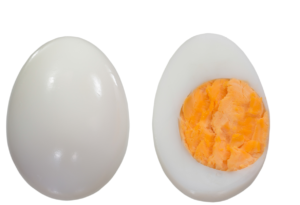Maintaining good health is all about balance. Three key factors play a huge role in helping us live a healthy and happy life: staying hydrated, getting enough quality sleep, and eating well. These might sound like simple things, but they have a major impact on our overall well-being.
In this blog, we’ll explore each of these factors in detail and provide easy tips to improve your hydration, sleep, and eating habits. Let’s dive in!
Staying Hydrated: Why It’s Essential
Water is essential for life. It makes up around 60% of the human body, and almost every system in our body depends on water to function properly. Despite this, many people don’t drink enough water throughout the day.
Here’s why staying hydrated is so important:
- Improves physical performance: When you don’t drink enough water, it can affect your physical abilities. Even mild dehydration can make you feel tired, reduce your strength, and slow down your reaction times. Athletes and those who exercise regularly need even more water to stay at peak performance.
- Boosts brain function: Dehydration also affects the brain. Studies show that even mild dehydration can lead to problems with mood, memory, and concentration. Drinking enough water helps your brain work at its best, keeping you focused and sharp.
- Supports digestion: Water is key to healthy digestion. It helps break down the food you eat so your body can absorb the nutrients. It also keeps things moving in your digestive system, helping to prevent constipation.
How Much Water Do You Need?
The general recommendation is to drink at least 8 glasses of water per day, which is about 2 liters. However, your needs may vary based on your activity level, environment, and overall health. If you’re active or live in a hot climate, you might need more water.
A good way to check if you’re hydrated is to pay attention to the color of your urine. If it’s light yellow or clear, you’re likely drinking enough water. If it’s dark yellow, it’s a sign you need to drink more.
Tips to Stay Hydrated:
- Carry a water bottle: Keeping water nearby makes it easier to drink throughout the day.
- Set reminders: Use your phone to set reminders to drink water, especially if you tend to forget.
- Eat water-rich foods: Fruits like watermelon, cucumbers, and oranges are high in water and can help keep you hydrated.
The Importance of Quality Sleep
Sleep is often overlooked, but it’s just as important for your health as eating well and exercising. Good sleep improves your mental and physical health, boosts your immune system, and helps you recover from stress.
Why Sleep Matters:
- Restores energy: Sleep gives your body a chance to rest and recharge. During sleep, your body repairs cells, tissues, and muscles. This is why you feel refreshed after a good night’s sleep.
- Boosts brain function: Sleep plays a crucial role in learning and memory. While you sleep, your brain processes information and strengthens connections between neurons. This helps you remember what you learned during the day.
- Improves mood and mental health: Poor sleep is linked to mental health issues like anxiety and depression. On the other hand, good sleep can improve your mood, making it easier to handle stress.
How to Improve Your Sleep Quality:
- Stick to a schedule: Try to go to bed and wake up at the same time every day, even on weekends. This helps regulate your body’s internal clock.
- Create a relaxing bedtime routine: Avoid using electronic devices before bed. Instead, try reading a book or listening to calming music to help you relax.
- Make your bedroom sleep-friendly: Keep your bedroom cool, quiet, and dark. Investing in a good mattress and pillows can also improve sleep quality.
- Watch what you eat and drink: Avoid caffeine and heavy meals close to bedtime, as they can interfere with sleep.
Eating Well on a Budget
Eating healthy doesn’t have to be expensive. With some simple planning and smart choices, you can enjoy nutritious meals without breaking the bank.
Why Healthy Eating Matters:
- Gives you energy: Food is the fuel that powers your body. Eating a balanced diet provides the energy you need to get through the day.
- Supports overall health: A diet rich in fruits, vegetables, whole grains, and lean proteins provides your body with the vitamins and minerals it needs to stay healthy and prevent chronic diseases.
- Helps manage weight: Eating the right foods in the right portions can help you maintain a healthy weight and prevent weight-related health problems.
Tips for Healthy Eating on a Budget:
- Plan your meals: Before you go grocery shopping, plan your meals for the week. This can help you avoid impulse purchases and reduce food waste.
- Buy in bulk: Items like rice, beans, oats, and pasta are often cheaper when bought in bulk. These staples can be used in a variety of healthy meals.
- Choose in-season produce: Fruits and vegetables that are in season are usually cheaper and fresher. Frozen fruits and vegetables are also a great option, as they are often more affordable and last longer.
- Cook at home: Homemade meals are not only healthier but also cheaper than eating out. Try cooking large batches of food and saving leftovers for future meals.











